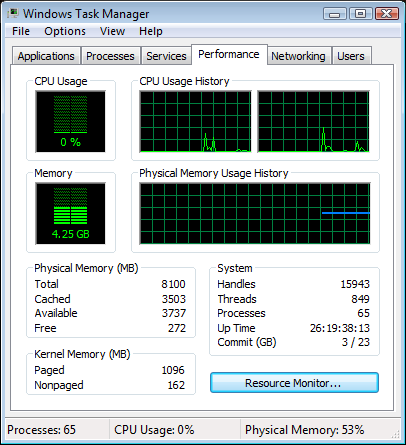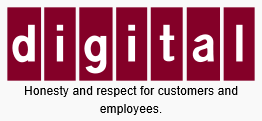Content Type
Profiles
Forums
Events
Everything posted by NoelC
-
Or you could just set the Windows Update bag of bricks down and walk happily away. Microsoft WANTS us to worry about updates, to obsess over them, to incessantly make running Windows all about them, and not about what we're trying to use the operating system to accomplish. As a side benefit you can start to explore long uptimes... -Noel
-
That was an entertaining read - thanks jaclaz. I especially liked spotting his chosen username in the Start menu. -Noel
-
I guess because it's just before dawn here now, but my free-associating mind imagined a grim, serious group of grizzled hikers working their way slowly and carefully up an ice-covered ridge toward a mountain summit, when suddenly one loses his grip, starting a long fall down the steep, slippery slope. Of course, that hiker is attached by rope to all the others, so one by one they're being pulled off their feet... One still standing is thinking, "I knew I should have brought my hang glider..." -Noel
-
Oh, right, I see - it's that Microsoft thinks that a release of its operating system merits being in the same sentence as "#NinjaCat", and that announcement of a build should be done over some kind of Twitbook or whatever portal. It's nice to see people enjoying their jobs, just as long as they do them well. -Noel
-
What am I missing? Don't both posts say the same thing? Did Dona think that @windowsinsider was saying build 14372 is released for RTM or something? It DID say "Windows Insider" and "Fast ring" after all. -Noel
-
Bphlpt, have a glance at this for applicability: https://msdn.microsoft.com/en-US/library/ee377058(v=bts.10).aspx -Noel
-
Windows Update is like a bag of bricks... -Noel
-
Thinking about root causes for a moment... Does the internet NEED to be monetized to be good? Ask yourself... What parts of it are good? In my opinion the best thing coming from the internet is the sharing of experience - such as we find at this forum. Someone might ask, how is the owner of the hardware supposed to make enough to pay for the gear, pay for the internet connection, and run the forum? My knee jerk response to that: Not my problem. The people contributing their expertise - the real, valuable CONTENT that makes forum sites worth visiting - are not being paid to do so. I see no reason those doing the hosting shouldn't expect to contribute as well. IMO, making money off other people's contributions is not a legitimate business, and those trying to do so should be ashamed of themselves. Look around... Monetization has bred huge amounts of crap online. I block some 50,000+ servers and domains, and the list could grow to 4 times that if I were actually incorporating ALL the blacklists I can find. Those blacklists are freely shared by people out of the goodness of their hearts. That's 50,000+ servers bent on distributing malware, invading privacy, and/or trying to make money by pumping ads. Why are they out there? Why do they exist? What useful, positive things could those people be doing instead of setting up their garbage websites? Monetization has even reduced the level of professionalism and ethics of companies like Microsoft, Google, and Apple, precisely because in this culture of "anything goes" they can get away with it. Don't get me wrong, I don't expect monetization to somehow vanish. That's of course ridiculous; the whole idea is moot given the real world. Sites will continue to try to be ad supported. I have no problem allowing ignorant people, who choose not to spend the time/effort to develop the smarts to block ads - or those who really want to see ads because they just can't think of enough stuff to spend money on all by themselves - bear the burden of seeing them. Any site that limits my access because I won't allow ads isn't worth visiting in my book. I learned that Forbes, for example, tries to block access to its articles if you block their ads. Can I live without ever reading an article at forbes.com? I think somehow I'll scrape by. I'll tell you this: I'm not influenced to buy something by seeing an ad online, and I never will be. I certainly don't want to switch to an ad-supported operating system! -Noel
-
OS X is possibly the most realistic alternative to Windows, but going with Apple does have its downsides. They don't put much effort into compatibility, for example. And their focus is decidedly on selling you things again and again. So if you're not one who wants to be spending, say, $1000+ a year every year for hardware and software, switching to Apple might not be that attractive a proposition. And the "walled garden" of "these are the only things we're going to allow you to run" might feel a bit extreme to folks used to the kind of control we've had with Windows. Never having tried to apply OS X to real work myself I'd have to say at first blush OS X just seems too dumbed-down to me - but then so does Windows right out of the box. I'm sure that since OS X is Unix under the covers, one could probably get pretty geeky with it. But then it's just Unix, and as has been pointed out most of us have already had the opportunity to use Unix and have passed it up before... Just between us chickens, that I could move to a Mac Pro seems somehow comforting in light of what Microsoft's been doing, er, not doing. -Noel
-
And let's not forget that they are seriously attacking the "tweak the OS to be acceptable" approach by keeping Windows a moving target (releases every 6 months, more often for "insiders"). -Noel
-
That's a very good point. There certainly DOES need to be a balance between change in technology that ENABLES new things that are needed, vs. CAUSES TROUBLE with existing things that are needed. The number of those existing things is growing as we all become more dependent, while the number of new things is shrinking. Another way to put it: Would we be just as well off without the most cutting-edge tech? It's pretty clear we'd be generally better off without things going in the direction of Windows 10. Where could you draw the line? Maybe an OS should be left alone for 30 years so that a nice, complete ecology can grow around it. One of the reasons any of us can have a really complete, functional computer system to do whatever it is we do is because Windows has been careful to maintain compatibility for decades. If anything, now is the time to polish what's there, not try to throw it all out and start with something else (and which happens to be inferior). -Noel
-
Unfortunately, not quite. It can't run any recent version of Adobe software (e.g., Photoshop) after CS6, for example. And I believe a lot of games require newer graphics implementations than XP can offer. I have moved my own graphics products (which are pretty much tied to Photoshop) ahead so that they simply refuse to install on Windows XP. It's not because I dislike XP - I need a modern OpenGL implementation, guaranteed SSE2 instruction support for performance, the GDI+ subsystem for UI work, and a number of other things under the covers such as solid 64 bit support (and yes, I know about XP x64 and used it for a long time). In short, technology marches on, and software starts to need advancements the older system doesn't support. However, if you look at XAML/UWP/the App ecology in a hard light, there's really no technology advancement, just rearrangement of the chairs - which equates pretty clearly to no "must have" Apps becoming available so far. That being said, there IS only one place you can run DirectX 12, so it's clear Microsoft isn't completely unaware of how things play out. And, looking forward, they like to think everyone's going to want a Hololens and to talk with Cortana. They're not completely wrong about that. So the present situation of "Win7/8.1 is good enough to keep using" isn't going to keep forever. I think their main shortcoming is simply their limitations of technical capability. Doing software and systems that are truly useful just isn't easy. Does Win 10 have enough "new innovation" to start becoming an attractive environment for cutting edge software that can/will only run exclusively on Win 10 and above? That's the ultimate question. So far, since Microsoft simply isn't able to execute at a cutting edge level, not so much. I haven't heard of any App yet that I want or need or can't find an alternative for in the desktop world. But time will change that. In time, Microsoft will ultimately succeed at changing the definition of "normal". I'm not playing devil's advocate, just taking a realistic look ahead - much as what Glenn9999 has done above. The bottom line question is this: How many years do we have for Microsoft to mold Windows 10 into something we want / need? -Noel
-
Not really, no, it's not at all irrelevant when you consider timing. You make the mistake of thinking that nothing we do can thwart Microsoft's control over what we already have. There's a reason some of us haven't adopted the "free" upgrade for anything more than testing in VMs. Dencorso has it right. When the last of the permanently licensed operating systems can no longer be kept on life support or they are just too irrelevant to be useful any more for real development or content production use we can only hope that another shining star has arisen. I like the slogan Wikipedia shows along with the logo... -Noel
-
That's a fair question, and it cuts to the crux of why Windows becomes difficult to approve for secure use in an era where one doesn't implicitly trust the OS vendor. I personally know every attempted communication from any of my systems by both monitoring my DNS resolution log (I have my own DNS server) and more specifically because I run 3rd party firewall software (Sphinx) that is set to "block outgoing connections by default". It will both block unwanted comms and let me know they were attempted. When I don't see such attempts I can be sure they are not occurring, and I am sure they will not occur if they should be attempted. The only update-like process I do still see occur with this setup is the update of Windows Defender definitions, which if the Windows Update service is disabled is done by the "Microsoft Malware Protection Command Line Utility" (C:\program files\microsoft security client\mpcmdrun.exe). Apparently this is fallback behavior inside Windows Defender if the update service is off. In that case these specific servers are contacted using http: comms: www.microsoft.com definitionupdates.microsoft.com go.microsoft.com Do I know that Microsoft will never start up some process to request/install OS updates even with the wuauserv process disabled? No. But I do know that my system won't allow it to succeed if they do - and you can bet I will report it here, and far and wide. FWIW, this is the list of servers that must be enabled for the various recent versions of Windows to be able to do an update. In my case, I only reassign this zone, which specifically allows these comms only if I'm preparing to do Windows Updates. There are some other servers I *never* allow to be resolved or contacted, including these wildcarded names from my DNS server setup files... *vortex.data.microsoft.com=0.0.0.0 *vortex-win.data.microsoft.com=0.0.0.0 *settings-win.data.microsoft.com=0.0.0.0 *.vo.msecnd.net=0.0.0.0 *telemetry.microsoft.com=0.0.0.0 I can go into even more detail if you'd like. -Noel
-
I agree, but... FYI, since almost at the very first Windows 10 pre-release build (what's that, over a year now?) I have been "managing" the Windows Update service, along with a change in firewall configuration, to prevent a run of Windows Update for any reason without my go-ahead. It just involves normally keeping the Windows Update service (and in my case Windows Firewall Service) set to Disabled and not running. I also use the WUShowHide tool on Win 10 to check for available updates without actually installing them. It's not a terribly difficult process to go through. Yes, it requires more thought and care than the old system, where Windows Update was a tool for you, not Microsoft. But it's the kind of thing you could easily put on a sticky note as a checklist, and it DOES get you ultimate control. It also means one less service is running, soaking up a few resources. Lastly, wasn't there a "forced update" that was delivered to Vista without user approval some years ago? That proved Windows Update is capable of such shenanigans and I doubt very much that they've taken out the ability to do that since then. Normally keeping the Windows Update service Disabled on ALL your systems is something well worth a thought. I keep it like this on Win 7, 8, and 10 systems: -Noel
-
It has been my experience that after installation of available updates the next check (revealing no more available updates) has gotten quick. Then, each month when the list of available updates grows, the "hard CPU loop" problem returns with a vengeance. So I've learned to be cautious about calling it "fixed". -Noel
-
True wisdom there. -Noel
-
Entirely up to you. Maybe delete the OT stuff. It's not important. -Noel
-
I don't know. I'm certainly not the first to think of blocking name resolution via a managed hosts file, of that I'm sure. Right now my hosts file, as generated by this script, has 38K+ entries in it. This script tries to work with whatever else you have already in your hosts file, avoiding overlap and not replacing, but adding to the end. -Noel
-
Perhaps we have different definitions of "domination"... Have you read the services agreements? Why do you think they would spend 26 billion dollars to buy the LinkedIn database and engine? What is Skype doing right now, this minute? Is it true that GWX is being delivered via Windows Update? Know anyone who has had a worse experience with Windows Update on Win 7 or 8 lately? Have you ever wondered why your system is trying to contact vortex.data.microsoft.com, vortex-win.data.microsoft.com, settings-win.data.microsoft.com, vo.msecnd.net, telemetry.microsoft.com, statsfe2.update.microsoft.com, and others? Have you ever had a preference/setting reverted due to a Windows Update? -Noel
-
I suggest waiting a few weeks at least, or dropping off the update cycle altogether (on that Woody Leonhard and I disagree). I've personally adopted a "not unless I'm convinced of a real need" moving forward. Microsoft is no longer trustworthy - they've proven it, it's not hype. I don't personally believe they any longer have the desire or talent to deliver bug-free patches. Remember that they've adopted a "let the customers test it" philosophy. Why would you assume that software delivered by Windows Update is any less buggy than the software it replaces? Yes, there comes a time of anxiety, but understand that it's largely hype-driven. If you're conscientious, there's really no reason to feel "OMG, my system is now insecure!" If there are latent vulnerabilities, you've had them all along. If you're exposing your system's vulnerabilities to the wild internet by, I don't know, just browsing and downloading with abandon (i.e., allowing any old site to run any old program) then you're the vulnerability, not the system. If security concerns you, please see my lastest HostsCompiler script for improving your security picture FAR MORE than any Windows Update. -Noel
-
There are workarounds for that... Since I can't respond directly to Gaurav's poll, my answer to "what's the worst thing they've done to Windows" is this: Promised to disrupt everything several times a year by releasing a new build. Nothing will ever progress if the OS itself remains a moving target. Serious, state-of-the-art civilization-advancing applications take YEARS to write. Some even decades. These id*** companies pushing the "agile" model need to take a cue from nature. Too much change too quickly and extinction occurs. -Noel
-
Have to agree with you there, Formfiller. People just can't see or accept what's being done to them, and the most insecure amongst them want to fit in with a winner so badly that they choose the side of the oppressor. -Noel
-
I can only answer that with - and I'm sorry if this seems a bit disrespectful - well duh! -Noel




